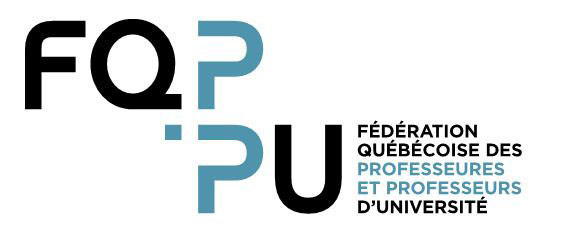McGill Law professors have been on strike since August 26th. Their core demand is simple: recognize their union’s right to exist. In contrast to every other university in Quebec, McGill is seeking to deny its faculty’s right to collective bargaining.
As faculty association presidents, we remind McGill that unions are precious allies in the pursuit of universities’ fundamental mission: to create and disseminate knowledge in the public interest. When the voices of stakeholders are heard, severe institutional crises can be averted. Conversely, such crises are more likely in the absence of guardrails to curb abuses arising from the concentration of power and to prevent private interests from steering the university away from the common good.
[Les crises les plus graves] are more likely in the absence of guardrails to curb abuses arising from the concentration of power.
In our work as union representatives, we have all witnessed external pressures brought to bear on professors. Performance contracts, excellence chairs, private partnerships, innovation strategies—none of these ideas are bad in and of themselves. Still, they must be scrutinized rather than imposed as dogma in our institutions. Who plays the role of watchdog? Generally, not university administrations, who often leap at opportunities to promote them. Instead, it is professors—through their faculty associations—who guard against institutional transformations that risk compromising the balance between research and teaching, as well as between fundamental and applied research.
McGill Must Recognize AMPL
The Association of McGill Professors of Law (AMPL) was founded in 2022 after the first successful faculty unionization drive at McGill since its founding in 1821. From the outset, McGill has sought to prevent its certification by engaging in protracted and costly litigation. Though the Tribunal administratif du travail (the “TAT,” Quebec’s labour court) ruled against all of McGill’s arguments, the administration is undeterred in its campaign to thwart its professors’ aspirations to speak with one voice. It is contesting AMPL’s certification before the Superior Court and has repeatedly violated our colleagues’ labour rights. Indeed, the TAT recently ruled that McGill appears to be engaging in unfair labour practices and ordered the university to respect the Labour Code and cease interfering in union affairs.
Even under these circumstances, AMPL members did not take their decision to go back out on strike lightly. Before taking this step, the union was willing to make significant concessions. McGill’s response to the latest proposals is telling. Though the union seeks a collective agreement—believing that dialogue is the best way forward—McGill has sought arbitration. This would allow McGill to avoid negotiating with its professors and add further delay, buying the administration time to pursue its strategy of litigating AMPL out of existence. In response, the union twice offered to call off the strike and proceed with arbitration on the condition that the university abandon its legal proceedings and recognize its professors’ right to bargain collectively. The administration refused.
Despite McGill’s prestige, its administration’s actions have put it in the last rank in labour relations matters.
Despite McGill’s prestige, its administration’s actions have put it in the last rank in labour relations matters. Such contempt for its professors and their right to collective bargaining is unbefitting and incompatible with the ideal of collegiality on which the university is predicated. Collaboration and collegiality are not just buzzwords for annual reports. These principles must be continually practiced at every level of university governance and entail recognizing and respecting professors’ fundamental right to associate.
All unions and associations that are members of the Fédération québécoise des professeures et professeurs d’université are, in turn, calling on the McGill administration to see reason. McGill must—at the very least!—live up to the standards of other Quebec universities regarding labour relations. AMPL wishes to contribute to the university’s mission fully. The administration must stop working against its professors and start working with them.
- Madeleine Pastinelli, president of the FQPPU
- Ciprian Alecsandru, President, CUFA (Concordia University)
- Tikou Belem, President, SPUQAT (Université du Québec en Abitibi-Témiscamingue)
- Jayson Crook, President, APBU (Bishop’s University)
- Gregory De Crescenzo, President, APEP (Polytechnique Montréal)
- Sonia El Euch, President, SPPUQTR (Université du Québec à Trois-Rivières)
- Bernard Gagnon, President, SPPUQAR (Université du Québec à Rimouski)
- Anne-Renée Gravel, President, SPPTU (Université TÉLUQ)
- Gilles Imbeau, President, SPPUQAC (Université du Québec à Chicoutimi)
- Fasal Kanouté, President, SGPPUM (Université de Montréal)
- Alejandro Lorite, Interim President, SPUQ (UQAM)
- Helen Luu, President, CMCFA (Royal Military College Saint-Jean)
- Julie Myre-Bisaillon, President, SPPUS (Université de Sherbrooke)
- Martin X. Noël, Vice-President of University Affairs (Université du Québec en Outaouais)
- Marie-Hélène Parizeau, President, SPUL (Université Laval)
- Marie-Soleil Tremblay, President, APPENAP (École nationale de l’administration publique)
- Cathy Vaillancourt, President, SPINRS (Institut national de recherche scientifique)
- Elijah Van Houten, President, AIPSA (Université de Sherbrooke – Engineering)
Stay up to date
Subscribe to the Federation newsletter.


